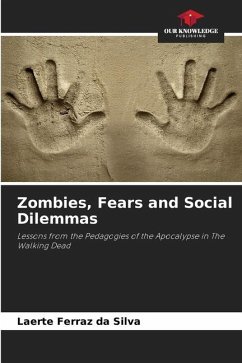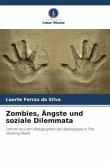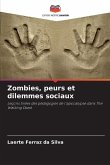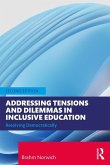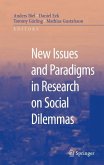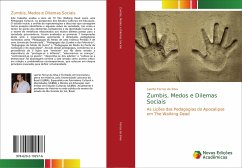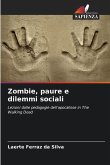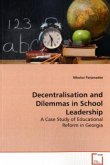This paper analyzes the TV series The Walking Dead as a Cultural Pedagogy, from the perspective of Cultural Studies in Education. The study included the analysis of representations and discourses that enshrine certain identity positions and visions of society, such as the fear of losing elements of civilization and human identity, and the examination of metaphors related to the many dilemmas posed for postmodern society. The first seven seasons of the series were analysed and organized into four pedagogical dimensions, named "Pedagogies of Fear of a Lost Childhood and a Distorted Youth", "Pedagogies of Zombies and Monsters", "Pedagogies of Fear of the Other" and "Pedagogies of Fear of the Loss of Civilization and the Apocalypse". Through these pedagogies, we considered the origin of 5 lessons that "teach" fans of this series the importance of "protecting childhood", "educating children", "controlling young people", "distrusting adults" and "cultivating democracy". This approach gives this series a certain critical accent in relation to contemporary issues that call into question the principles invoked to define humanity.
Bitte wählen Sie Ihr Anliegen aus.
Rechnungen
Retourenschein anfordern
Bestellstatus
Storno

